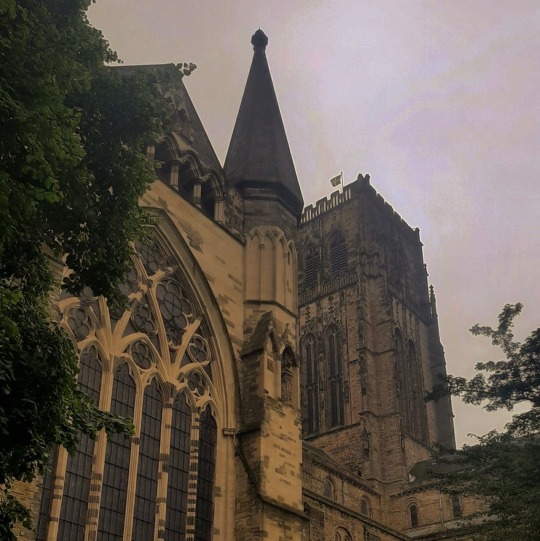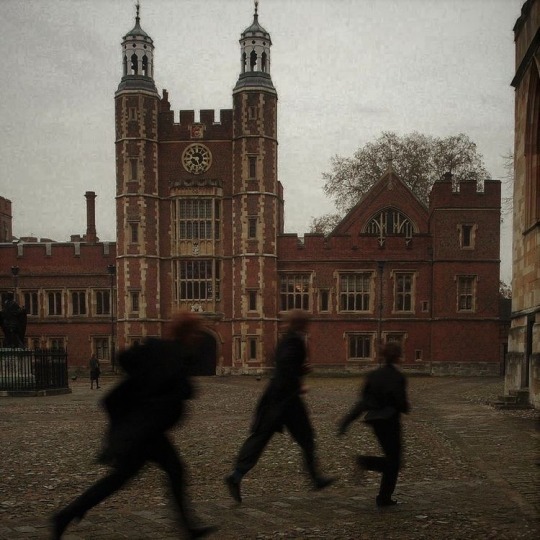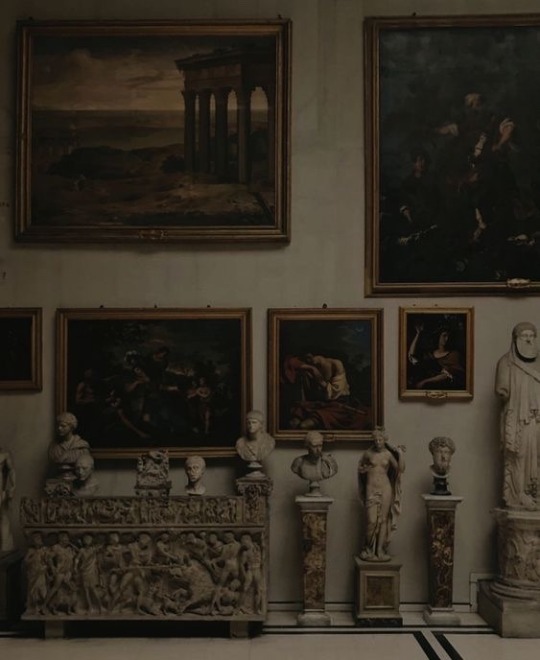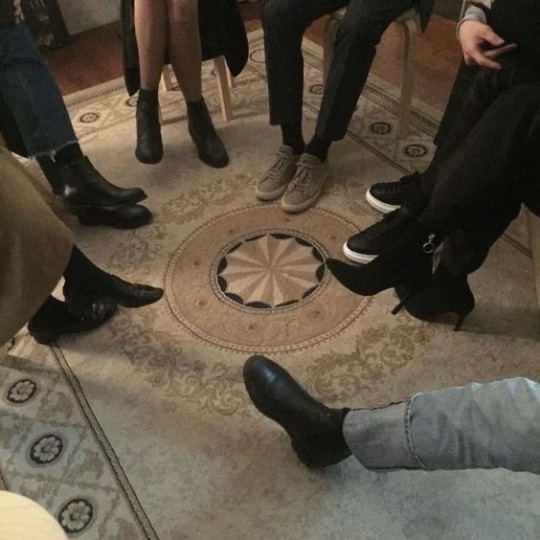#ancient writeblr
Explore tagged Tumblr posts
Text
Ides of March Writing Challenges:
🗡️ Stab it: Write 23 words (or 23 sentences if you're playing on hard)
🗡️Settle a debt: Finish an old unfinished work
🗡️Become a dictator: Outline a version of your narrative world where your protagonist has complete control. What would they want the world to look like?
🗡️Kill Caesar: Outline a version of your story where the main character dies. What would all the supporting characters do?
#Ides of March#julius caesar#ancient rome#march 15th#writing challenges#writing exercises#writeblr#writblr#writing#writer problems#writer community#writers on tumblr#writers and poets#writerscommunity#creative writing#writing humor#writing memes#writing process#writer#writers community#writing community
935 notes
·
View notes
Text









"We didn't care whether we lived or died, and that is the exact reason we lived." - Henry Winter
#the secret history#poetry#poets on tumblr#writers and poets#melancholic#soul#literature#classical literature#dark academia#poems and poetry#writers on tumblr#poems on tumblr#writer and poets#poetsandwriters#poems and quotes#poetic#poem#writeblr#writing#dark acamedia#dark acadamia aesthetic#philosophy#latin language#ancient greek#henry winter#richard papen#bunny corcoran#francis abernathy#charles macaulay#camilla macaulay
2K notes
·
View notes
Text
The Pomegranate Plague of Gen Z Poets
First, it was the moon. Then cigarettes. Then, girls by windows, ethereal in their ruin. Now? Pomegranates. (from my substack)
If you’ve spent enough time around poetry circles, you’ve seen it before. The doomed love, the Persephone complex, the vaguely sacrificial undertones. And, of course, the fruit.
The Persephone Myth (The Popular Version)
So you think you know the story: Persephone, wreathed in flowers, is stolen by Hades, dragged screaming into the Underworld. Her mother, Demeter, weeps and starves the earth in protest. Zeus, eventually deciding this is a problem, orders Persephone’s return—but oops, she ate six pomegranate seeds, so now she’s doomed forever.
That’s the version that survives in girl poetry, anyway.
What Promegerants Girls won’t tell you? The actual myth is a mess. There is no single, definitive version—just fragments, scraps stitched together across centuries. And the pomegranate seed detail?
It barely even shows up.

What We Actually Have:
• Persephone’s myth wasn’t even originally Greek. The story of a goddess being dragged into the underworld predates Greek mythology entirely.
• In Mesopotamian myth, Ishtar (Inanna) descends into the underworld to confront Ereshkigal, queen of the dead. She is stripped of her power and trapped, only escaping by offering someone else in her place—a theme that later appears in Persephone’s myth. This suggests Persephone’s story wasn’t a Greek invention but an adaptation of older Near Eastern fertility-death-rebirth cycles.
• Despoina (“the Mistress”) was worshipped before Persephone—and before Hades was even relevant. In older, pre-Olympian cult traditions, Despoina was the actual chthonic goddess of the underworld. She was venerated alongside Demeter and was probably a far more powerful, independent figure before later mythology reduced Persephone to “Hades’ wife.” Despoina’s cult was deliberately secretive, meaning much of her lore is lost—but she was deeply tied to the Eleusinian Mysteries, which were about life, death, and rebirth, not tragic romance.
• Hades wasn’t even a major figure in early versions of the myth. Before he was written in as “the husband,” the underworld was associated more with Gaia (Earth) and Nyx (Night). Hades’ later dominance in the story came as Olympian mythology reshaped older chthonic traditions.
• Persephone was originally Kore (“the Maiden”)—not a tragic heroine, but an archetype of the life-death-rebirth cycle tied to agriculture. She wasn’t a person; she was a function. The whole point was that she disappears, then re-emerges—her personality was secondary to the cosmic process she represented. Only much later did people start treating her as an individual.
• Hesiod’s Theogony (~8th century BCE), one of the oldest Greek texts, barely mentions Persephone. To him, she’s just Hades’ wife, no backstory necessary. This matters because it shows that her abduction wasn’t even a central myth at first—it developed later.
• The Homeric Hymn to Demeter (~7th century BCE) is our earliest and most detailed source. But forget romance—it’s a political nightmare. Hades kidnaps Persephone (the Greek verb used, ἁρπάζω, literally means “to snatch away”—no courtship, no tragic longing). Demeter shuts down the harvest, and Zeus steps in not out of fatherly love, but because no crops mean no sacrifices, and no sacrifices mean starving gods.
The pomegranate? One sentence. Persephone eats something in the Underworld, so she has to stay. That’s it. The number of seeds? Not even mentioned. The whole “I bit into a pomegranate and now I am bound to darkness forever ”dramatics? A complete invention.
• Ovid’s Metamorphoses (~8 CE) is where we finally get the six seeds detail—but Ovid was Roman, writing centuries after the Greek versions had already evolved. His retelling heightens the drama, turning Persephone into a tragic, doomed figure rather than a cosmic force tied to ritual.
• Later Orphic traditions tried to clean it up, recasting Persephone as the mother of Zagreus (a god later merged with Dionysus), tying her to death, rebirth, and mystery cults. At this point, the myth had already spiralled into layers of mysticism.
• Persephone wasn’t always tragic—she became terrifying. The helpless waif image is a modern fabrication. The ancient sources tell a different story—one where Persephone is feared, not mourned.
• In Euripides’ Helen (412 BCE), she is invoked as a vengeful queen of the dead.
• In Homer’s Odyssey (Book 10), Odysseus fears Persephone’s wrath during his necromantic ritual—she is powerful enough to control the dead without Hades.
• Hecate was Persephone’s underworld counterpart and guide. In later versions, Hecate leads Persephone back to the upper world, further reinforcing Hecate’s enduring role in the chthonic realm.
• In Roman tradition, Proserpina (Persephone) was linked to Libera, a goddess of wild fertility and ecstatic rites. This completely contradicts the modern image of her as a fragile, tragic figure.

The Pomegranate Wasn’t Inherently Tragic
• In Hippocratic medical texts, pomegranate juice was used for contraception and abortion remedies—a practical, everyday association, not one of doom.
• In Pliny the Elder’s Natural History (1st century CE), pomegranates were used to treat fevers and digestive issues. No poetic suffering, just ancient medicine.
• In Greek funerary practices, pomegranates symbolised rebirth, not entrapment. They weren’t about being bound to darkness forever—they were about the cycle of life continuing.
Why This Completely Destroys the Promegerants Version of Persephone
1. The myth is about agriculture and divine power, not doomed love. The earliest versions barely mention Hades—this was Demeter’s story, a myth about the life cycle, cosmic balance, and the survival of humanity.
2. Persephone wasn’t always Persephone. She was Kore, an agricultural symbol, not a tragic heroine. Her function came first, her personality second. The idea of her as a fully realised, suffering individual came centuries later.
3. She wasn’t even the first queen of the underworld. Despoina was worshipped before her—an older, more powerful chthonic goddess with nothing to do with victimhood or romance.
4. The pomegranate was never central to the original myth. It’s a tiny, passing detail used as an explanation for why Persephone had to stay in the Underworld. The number of seeds? A Roman invention.
5. The whole myth wasn’t even Greek to begin with. It likely evolved from Mesopotamian myths like Ishtar’s descent, meaning the Promegerants version is a distortion of a distortion.
6. Persephone wasn’t a victim—she was a force of nature. The later versions of her myth don’t show her as tragic—they show her as terrifying. She was a queen who ruled the dead, feared even by heroes. If Promegerants Girls really wanted to stay true to the myth, they wouldn’t write about Persephone tragically eating seeds—they’d write about her punishing mortals for disturbing the dead.
From Chthonic Queen to Tragic Girlcore
The Promegerants version of Persephone strips her of her original role and reduces her to an aesthetic prop. In the oldest sources, she isn’t even a person—she’s a cosmic force, an idea before she’s a character.
Persephone was never just a tragic girl in a dark room with red-stained lips. She was a goddess of cycles, a ritual figure whose presence dictated the survival of humanity. The oldest myths barely even cared about her personal emotions—because that wasn’t the point.
And the pomegranate? Once a symbol of fertility and power, now just a moody Tumblr metaphor for doomed relationships. Would the ancient Greeks recognize Promegerants Persephone?
Absolutely not.
They’d probably assume she was some mediocre Roman poet’s overdramatic rewrite.
In other words: the version we cling to is a late, Romanized, overly romanticised distortion of a much darker and weirder myth—one that was never about love, tragedy, or women choosing their suffering.

Why Has This Myth Been Hijacked?
Because it’s too easy. The modern interpretation lets poets turn Persephone into:
• A stolen innocence narrative—without engaging with its actual horror.
• A tragic queen figure—without ever giving her power.
• A martyr for womanhood—as if eating a fruit were some grand metaphor for the inevitability of suffering.
But Persephone’s story was never about being loved and ruined.
It was about bargaining, power, and gods who don’t care about human grief.
The Pomegranate Problem™
At this point, the pomegranate isn’t a symbol—it’s a decorative prop.
Its original meanings—fertility, power, the tension between life and death—have been stripped away, replaced with moody girlhood aesthetics.
Poets don’t use it because they understand its history. They use it because it sounds expensive—like a fruit for people who romanticise heartbreak in foreign cities.
But if your poem still works after swapping “pomegranate” for “grapes”, then what are we even doing here?

Read This Before You Write Another Pomegranate Poem
• Homer’s Odyssey → Pomegranates appear in King Alcinous’ eternal orchard, a symbol of wealth, abundance, and divine favour. Not doom.
• Euripides’ Ion → Associated with Aphrodite, symbolising fertility, passion, and desire. Again—not doom.
• Aristophanes’ Lysistrata → Used as an innuendo for female sexuality (which, frankly, would make for a far more interesting poem).
• Dionysian Mysteries → Linked to ecstatic rites, resurrection cults, and the cycle of life and death. If you want to write about pomegranates and darkness, this would actually make sense.
• Roman Religion → Sacred to Juno, particularly in marriage and childbirth rituals, reinforcing their connection to fertility and renewal, not suffering.
• Theophrastus’ Enquiry into Plants → Describes pomegranates as a cultivated luxury fruit, prized for its sweetness, medicinal properties, and status.
• Herodotus’ Histories → Mentions Persian warriors decorating their spears with pomegranates, symbolising strength, fertility, and victory.
• Pausanias’ Description of Greece → Describes pomegranate offerings at Demeter’s sanctuaries, representing fertility, rebirth, and ritual purification—never suffering.
• Plutarch’s Moralia → Links pomegranates to beauty, sensuality, and indulgence in Greek and Roman culture—so, more hedonistic pleasure, less tragic metaphor.
Next time someone writes about a pomegranate-stained mouth, ask them if they mean Persephone or Aristophanes’ sex jokes.
How to Write a Pomegranate Poem That Survives Scrutiny
If you must use it, at least be rigorous. If you’re going full Persephone-core, then be specific. Make it about something real.
Tell us if the juice stains the sheets, if the seeds taste like metal, if they stick between your teeth like regret.
Don’t just drop in “pomegranate” and expect us to do the heavy lifting.
Or consider letting the myth go.
There are so many other symbols, so many richer, underused classical references.

And If You’re Tired of the Pomegranate, Try These Instead
there’s a whole world of classical symbols that carry just as much weight—without the overuse. Here are a few:
Chthonic & Underworld Imagery:
• Asphodel – The ghostly, liminal flowers of the underworld in Greek myth, growing where souls linger. Less overdone than pomegranates, just as eerie.
• Lethe – The river of forgetfulness. Its waters erase memory, a far more unsettling metaphor for loss than a single piece of fruit.
• Orphic Gold Leaves – Real funeral tablets placed with the dead, inscribed with guidance for navigating the afterlife. The ultimate memento mori.
• Owls – Athena’s symbol, but also a nocturnal watcher associated with wisdom, death, and the unknown.
Fertility, Desire & Ruin:
• Fig Trees – Symbolizing sensuality, abundance, and decay (the Greeks also had fig-wood coffins).
• Laurel Wreaths – Victory and poetic ambition, but also a crown of temporary glory—since laurel leaves wither fast.
• Myrrh – A resin used for perfume and burial rites, evoking both seduction and decay. (Also linked to Myrrha, who was cursed to fall in love with her own father. Greek myths were wild.)
Dionysian Madness & Ecstasy:
• Thyrsus – A staff tipped with ivy and pinecones, wielded by Dionysus and his followers. Represents intoxication, divine frenzy, and the thin line between revelry and destruction.
• Ivy – Unlike flowers, it never dies in winter. Clings, suffocates, overtakes. A more interesting metaphor for entanglement than Persephone’s six seeds.
If you must use a pomegranate, at least make it bleed. But if you’re ready for something richer—there are so many other symbols waiting.
#malusokay#girlblogging#persephone#pomegranate#poetry#poets on tumblr#writers and poets#poems#poems and poetry#female writers#writing#writers on tumblr#writeblr#writerscommunity#substack#essay#personal essay#essay writing#classic academia#student#classics major#classics#classical literature#classic literature#ancient greek#classical studies#ancient greece#mythology#greek mythology#academia aesthetic
404 notes
·
View notes
Text
unpopular opinion but with the new tide of Greek mythology stories and retellings, Greek Cultural Sensitivity Readings are absolutely necessary. We are in 2024, with thousands of fics and retellings out there!! How is this not a thing yet?? There's vast improvement one can achieve by working professionally on their text with a Greek. I've seen it so many times!!
Also, duh, I'm offering the service BUT I want you to know that the situation with the inaccuracies of SERIOUS works is so dire that initially I didn't even do it for money. As a writer I just wanted to... fix things, to set a new standard for writers and the industry that sells us the most heavily Americanized pop-culture material and passes it as "authentic vibes of Greek mythology". (And of course there were writers who wanted to do right by their story and they had reached out to me. So kudos to them as well!)
Okay, but why does Cultural Sensitivity Reading make a vast difference and it's not just smoke and mirrors?
As a Greek, I am tired of well-meaning writers and authors butchering very basic elements of my culture. It's not their fault exactly, since they were raised in another culture with a different perspective. And nobody clued them in on how different Greek culture is from theirs, so writers sometimes assume that their culture is the default and they project that into ancient Greece. (Even published professionals like Madeline Miller have written "UK or US in antiquity" (with a very colonialist flavor) instead of writing "Ancient Greece". (Looking at you, Circe!)
Even writers who researched a lot before coming to me still had a lot of misinformation or wrong information in their text, easily verifiable by the average Greek. Again, not their fault. They can only access certain information, which does not include Greek scholarly work and scientific articles that DO offer valuable context.
Translation, accuracy, and meaning: If you ever wondered what a word means or how to pronounce it, here's your chance! There are Greeks like me who are knowledgeable and have a keen interest in antiquity and they will be able to read and compare ancient texts, and dive deeper into the work of Greek scholars regarding those texts.
If you want to create new words, you can do that as well! (It doesn't always work, but we can try. Greek is a really rich language and has a word about everything) If you use existing words, I can help you separate reality from fantasy in the context of your story.
(Do not assume we Greeks are ignorant of our heritage, or that we don't know how to research! Our archaeology sector is huge and archaeological museums are closer to most of us than your local Target is to you)
I guarantee there are things you never thought about Greece and the Mediterranean - from the ancient to the modern era. Sprinkling elements like phrases, types of interactions, customs, songs, instruments, dances, etc , into your text will make your text absolutely rich in culture.
Names matter!!! The genders of the names matter, diminutives matter (If I see one more "Perse" for Persephone I will claw my eyes out along with a few thousand Greeks), naming traditions matter!!! In many cases you should not even use a diminutive!!
You will be able to write about a foreign culture easily! Because of the continuity of Greek culture, you can even write a few more recent Greek elements to fill in the gaps. I can make sure they are not mismatched, and they will complement your ancient setting. I have observed a few things I didn't know we had since antiquity, but they make sense because our land has certain characteristics.
Non-Greek writers often miss the whole context of Greek culture! Do you know how Greek respect towards deities and parents looks like? What tones we use when we talk to our elders? When to use honorific plural - if your setting is more modernized?
Oh, and please let's avoid caricatures when describing Greeks?? (even fantasy Greeks) There can be heavy exotisation and odd descriptions of Greeks, as if we are another species. Even in published works. For many western writers it's difficult to catch, unfortunately.
The whole process is actually way easier than you think. You send me a text, I make notes and then we have some discussion on your vision.
It's always okay to seek guidance from the locals! You are not "guilty" when you admit you don't know! How can you know if you don't ask?? You can't imagine what relief and "πάλι καλά!!!" I read/see from other Greeks when I tell them another foreigner is using me for cultural sensitivity? Greeks want you to seek help and will NOT shame you for it!
(On the contrary, you have no idea how many eye-rolls Greeks do when they see a blatantly wrong thing in a story... Which has happened pretty often for many years now. Can we do better as an industry?? Please???)
You can send me a personal message to share your story, or ask what this whole cultural sensitivity thing is all about, or ask about what I have done so far and how I can help. But for the love of all that's good, don't let your story be another "generic greek myth retelling"! And don't let others sell you their generic greek myth retellings!!
#writing#writers and readers#novel writing#writeblr#writers on tumblr#representation#writer#greek mythology#retellings#classics#epic the musical#epic the wisdom saga#epic the troy saga#greek myth#greek myth retelling#fantasy#ancient greece#history#books#ancient greek#roman mythology#greek history#mythology#classical mythology#greece#art#greek gods#greek heroes#achilles#odysseus
746 notes
·
View notes
Text

vignettes before the poison, parts 1 and 2
#mine#writers on tumblr#poets on tumblr#writeblr#poetry#original poem#writing#poem#prose poetry#prose poem#writers and poets#cleopatra#antony and cleopatra#dark academia#web weaving#shakesposting#shakespeare#tagamemnon#ancient greece#ancient egypt#ancient history
224 notes
·
View notes
Text
Success in your studies isn’t about cramming the night before or relying on last-minute luck; it’s about consistent effort and dedication. Every time you sit down to study, you’re investing in your future self. Remember, the small, daily efforts add up to something great. So, take a deep breath, organize your notes, and tackle each topic one step at a time. Your journey may be challenging, but it’s also incredibly rewarding.
There will be days when motivation is low, and distractions seem endless. On those days, remind yourself why you started. Think about the goals you’re striving toward, the knowledge you’re gaining, and the growth you’re experiencing. You’re capable of more than you realize. Stay disciplined, take breaks when needed, and don’t forget to celebrate your progress, no matter how small. You’ve got this!




#study aesthetic#study blog#study inspiration#study motivation#studyblr#studying#studyspo#law of assumption#law of attraction#light academia#dark academia#motivating quotes#get motivated#motivación#motivation#loa success#successmindset#successful#universidad#university#school#lawblr#history#ancient history#chaotic academic aesthetic#chaotic academia#quotes#work in progress#writing#writeblr
479 notes
·
View notes
Text
A List of "Beautiful" Ancient Greek Words
for your next poem/story
Andreios - brave
Arete - virtue
Aristos - best
Asmenos - glad
Asphales - safe
Boetheia - help
Deinos - terrible
Demos - people
Doron - gift
Eirene - peace
Eleutheria - freedom
Elpis - hope
Eros - love
Ethos - custom
Glykus; Hedys - sweet
Hebe - youth
Hedone - pleasure
Hegemon - leader
Hesychaios - quiet
Isos - equal
Kalos - beautiful, good
Kardia - heart
Katharos - pure
Kephale - head
Kleos; Kydos - glory
Kosmos - order, adornment
Kratos - strength, might
Krites - judge
Lampros - bright
Olbos - wealth, happiness
Ophelia - help
Psyche - soul
Schole - leisure
Soteria - safety
Stephanos - garland
Telos - end
Thauma - wonder
Theos, thea - god, goddess
Tyche - chance, fate
Xenos - stranger
Source ⚜ More: Word Lists ⚜ Writing Resources PDFs
#ancient greek#word list#langblr#writeblr#writing inspiration#dark academia#writing reference#spilled ink#creative writing#light academia#literature#writers on tumblr#poets on tumblr#writing prompt#language#linguistics#poetry#writing resources
409 notes
·
View notes
Text
Mythology-themed Dividers
A/N: Loosely based on greek mythology (i.e. Athena, Aphrodite, Dionysis, Zeus, Poseidon, etc.) but interpret as you see fit! If you use these, please kindly tag me, thank you! <3









#dividers#free dividers#greek mythology#mythology dividers#greek mythology dividers#page dividers#post dividers#cute dividers#tumblr dividers#blog resources#page decor#greek gods#ancient greek#floral themed#tumblr resources#writer resources#writers stuff#writers#writers on tumblr#writerscommunity#writer community#writer help#creative writing#writeblr#writer stuff#fic resources#writing resources#fanfiction resources#resources
157 notes
·
View notes
Text
A Quick Ramble about Bronze Age Fishes and Worldbuilding

This is a minoan larnax, aka a "bathtub" sarcophagus. I had the privilege of seeing it along with many others while I was in Crete. Many of these sarcophagi, like the one below, had lids. However, this particular example (above) was not displayed with a lid, though it was presumably meant to have one.

What caught my attention about this particular larnax were those three fish. Many of these vessels have marine scenery (marine life, ships, water-like patterns, etc.). It is theorized that this imagery may be indicative of the Minoan afterlife, which was innately linked with the sea, or perhaps waited beyond it. But that is a whole different issue.
Why I found those fish so interesting is because they were located not on the outside of the larnax, but inside, meaning that when the deceased was interned and the lid placed, they would have only been "visible" to the dead, keeping them company in a way.
I wonder if the person who this coffin was intended for had a part in its design or, if not, what the loved ones who commissioned it were thinking. Maybe it was a bit of flair from the artisan that was never explicitly requested.
Regardless, I find something charming about those strange, seemingly inconsequential little human details that appear on ancient artifacts. They're not images of deities, and nothing indicates to me any deep explicit cutic or ritualistic meaning. They seem to just be fish. I hope those three little fishes were able to help the occupant on their journey.

I think when it comes to world building or just imagining the past, an important aspect is remembering little quirks like this. It's easy to use generalities, particularly about the material and physical aspects of a culture, but I think occasionally sprinkling in these little quirks helps to make your world feel more alive.
#testamentsofthegreensea#writeblr#bronze age aegean#minoan#ancient history#writing#fantasy#worldbuilding#world building#more vacation photos#fish#bronze age#minoan crete
74 notes
·
View notes
Text
A girl in Ancient Egypt wakes up to the morning dawn and walks the city streets, the river is bright under the summer sun tonight, she pets a street cat on her walk, she notices construction in this distance. She does not understand that she will someday be the subject of conspiracies, that people will argue about her true skin color, that people will claim her city was built by aliens, that her civilization will be the subject of a thousand ghost stories and adventure stories. She does not know the British will turn her king’s body into paint… A young Neanderthal awakens, and chooses to eat a slab of meat caught last night, he sings a mournful song as he thinks about a lover he has in a tribe of humans he may never see again. He does not know that he will be turned into a monster, that they’ll claim he spoke in grunts, that he’ll be imagined as humanity’s waring rival, that it will be argued if he was capable of compassion or not. He does not know that his skull will be placed in a creation ‘museum’ next to a sign trying to explain why he didn’t exist… Someone wakes up in 21st century America, they…
#196#worldbuilding#writing#my worldbuilding#my writing#short fiction#short stories#short story#flash fiction#ancient egypt#neanderthal#original story#original fiction#creative writing#writeblr#writers and poets#writers on tumblr#writerscommunity#history#archeology
88 notes
·
View notes
Text
Hyacinth laid his head against Apollo's thigh. He sat on the floor by his god's feet, thankful for the plush carpet upon the marbled floor for the meagre comfort it provided. He closed his eyes, revelling in the heat that radiated from Apollo.
Apollo's laughter was soft, light as song as it soared above their heads. Hyacinth felt Apollo's fingers upon his scalp, gently scratching and tugging at the hair at the root. Even the tune he hummed was nothing less than melodic.
Hyacinth refrained from opening his eyes, frightened of the prospective shattering of the moment. He sighed contentedly, "Have you ever wanted to stay in one moment for eternity?" He asked, and Apollo stilled. Hyacinth continued eagerly, "I wish to keep you here forever, Apollo. For the rest of my life and yours."
It was only now that Hyacinth noted the eerie stillness in the room. He opened his eyes reluctantly, "Apollo?"
He heard the harsh chord as the god cleared his throat. Hurriedly, a calloused hand dove into the tangle of curls at Hyacinth's neck. Apollo's voice was strained, like lyre strummed out of tune, "Eternity." He agreed, flushed, "Yes."

#Did I want to write this?#No.#No I did not#Did I do it anyway because tumblr doesnt give a shit about my ocs and I need the notes to make me feel good about myself?#Yes#Yes I did#Apollo#Hyacinthus#apollo and hyacinthus#greek gods#apollo x hyacinthus#hyapollo#writing#writblr#writer#author#writers on tumblr#my writing#writeblr#greek mythology#greek myths#greek god#ancient greek#my art#creative writing#greek myth#greek myth retellings#original work#queer#greek mythology retelling
44 notes
·
View notes
Text

#found this incredible mosaic in the Louvre collection and had to make a plot bunny meme#plot bunny#ancient greece#ancient greek#writeblr#writblr#writing#writer problems#writer community#writers on tumblr#writers and poets#writerscommunity#creative writing#writing humor#writing memes#writing problems#writing process#writer#writers community#writing community#2 braincells
119 notes
·
View notes
Text
might fuck around and become a symbol of death and rebirth, creation and destruction, beginnings and endings or something idk
Source: elytrians
#booklr#books#literature#writing#writeblr#poetry#spilled ink#poem#poets on tumblr#spilled words#ancient god#self diagnosis#lol#lolz#funny
58 notes
·
View notes
Text
did anyone ask for a SUPER LONG writeblr/wip intro?
my name is Ro, I'm 23 years old, and I currently work full-time as an optician while I juggle approximately a dozen projects. please please PLEASE tag me in your projects, tag games, whatever. I love to look at things :)
here's a handful of my current projects. let me know if anyone wants to be on a gen/specific tag list!
THE LAST LORINEAN
epic fantasy, draft 3.2
A marathon of a project, spawning from an absentminded idea in 2011. While the central cast has undergone some face-lifts over the years, the bones have remained somewhat unchanged. There's probably a million drafts of this out there, but we'll call my current one the third big effort to get the story written.
Found family, magical road-trip, and laying the foundations for an interconnected multi-series exploration of the universe in which it's set.
Those born on the Aronian continent do not dream, long-cursed by the Witch Queen of the previous age. The dream-weaving Lorineans, who once provided a reprieve from the curse to the Aronian people, conspired against the kingdom and earned their eradication at the hands of the now-immortal Emperor. The empire now lives in dreamless peace, a united force of human, elven, and faerie kingdoms.
In the rural south of the Empire, Lilliana Karington has been living a quiet life. Unbeknownst to her, a Lorinean has been hitching a ride on her soul for her entire life—a secret that will send her on the run. She is joined by a fugitive by the name of Sadene from the faerie kingdom of Kyrania who carries secrets of her own, secrets that could topple the Kyranian monarchy and pantheon both.
With Imperial soldiers and Sadene's twin brother on their heels, Lilli must learn to trust the Lorinean she is bound to if she is ever to find a way to return to her peaceful life. But as she learns more about the secrets her Empire hides, the harder it will be to find peace ever again.
THE DAUGHTER OF DENMARK
historical fantasy, draft 3
a.k.a. I played Hamlet seven years ago and now it's everyone's problem. A novelization/reimagining of Hamlet through the lens of gender, queerness, and what a religious conflict means when there is concrete memory of Denmark's pre-Christian heritage. However, please don't expect historical accuracy from this project. It's about vibes.
Court intrigue, love quadrangles, repressed trauma, tragedy… y'know, the Shakespeare of it all.
Hamlet has known what her life was meant to be from the very moment she was born. Named a Ragnarson to ensure her claim to the Danish throne, she has been sheparded by her kind-hearted father and traditional German mother towards the title and burden of King.
When a hunting accident brings Hamlet near death, she is sent to her mother's old university for safety, far from the politics of Denmark. The things she saw in the world between life and death haunt Hamlet between her studies and blossoming friendships.
All too soon, Hamlet is called back to Denmark, where a dark shadow has robbed her of all she once knew. Through madness and memory, she must spiral to the end of a story that was written long ago.
PROJECT: ATLANTIS
epic sci-fantasy, outlining
Inspired by a Google+ roleplay group the two of us were members of in 2014-2019, a friend and I have been building a world and narrative that stretches years of cowriting. We are slowly finding a way to adapt our work into novelizations. One day, we'll even come up with a title!
Political intrigue, vast worldbuilding, and a web of characters spanning one end of the world to the other. Featuring a conlang and neography!
After fifteen years of tenuous peace in Atlantis, the question of succession has risen again. Faolan Althaea is of age to take her family's throne, but the banished descendants of Faolan Agallai have retained their influences in the dark, and they are ready to make another bid for the throne. Althaea is thrust headfirst into the boiling conflict, and she must learn fast which faces to trust.
On the other side of a once dormant portal, Faolan Illyrius is paying the price for rescinding his claim to the coveted throne. The godless, ransacked world of Aegina—known as Earth to its inhabitants, the aeg'oroi—is hiding knowledge that could turn the tides of the Faolan and Agallai conflict, and he is the one who must get his hands dirty to find it.
The Agallai loyalists have not been dormant since orchestrating the death of Althaea's parents. They have gathered supporters of a new generation, preying on the aeg'oroi that regent Priar Arsina, ruling in Althaea's stead for the last fifteen years, is so determined to alienate. As the succession crisis comes to a head, loyalist agents vie for control over the portal connecting Atlantis to the aeg'oroi homeland.
Something dark lurks in the shadows of Entropy connecting these two worlds. The gods have fallen silent, and their people are divided. Will Atlantis stand, or will sickness devour it all?
ON THE PRECIPICE OF THE UNIVERSE
narrative sci-fi poetry, final draft
Return of the king… because I am going to be self-publishing her! I am starting a fresh round of edits and will be looking for some beta readers soon. Mostly need a vibe check on the amount/length of poems and general format. Then comes cover design (will be commissioning a college friend), page design, and figuring out how the hell I'm gonna do this!
Sentient spaceships, loneliness, and the great unknown.
When the last war broke out on Earth's surface, the spaceships launched. No one expected the fires to reach high enough to knock the entire fleet out of the sky—save one, a sole survivor drifting onwards to a new planet.
Years later, only one of the ship's passengers remains alive, going through the motions of the day without fail. The last human alive cleans the vents and weeds the hydroponic gardens. And, they write, chronicling the little life they have left to live.
OEDIPUS REGINA
tragedy, draft one
Apparently, I am allergic to writing a play about anything but the ancient Greeks. Yet another gender reimagining! This came at the request of some college friends who acted in The Kassandriad and have done some readings of my other Greek plays. Still debating if I will be swapping the masculine and feminine for the names.
Cycles of fate, inherited trauma, and the inherent eroticism of riddles.
Oedipus, princess of Corinth, is a young woman when she hears the prophecy that she kill her mother and bed her father. She flees the home she has always known and finds herself in Thebes, a city living in the shadow of a sphynx and the absence of their queen. The childless, widower king takes an interest in her; an interest that sets in motion a cacophony of disasters for the Theban throne.
EAT HER HEART OUT
drama, draft one
Guess what. It's a reimagining of a Greek myth. Who is surprised. This one is taking a look at the Homeric Hymn to Demeter—and yes, I am aware of how many Persephone retellings there are in the world. Leave me alone. What if I'm built different (I'm not).
Motherhood, dependence/independence, and unreliable narrators.
We visit three worlds: of the gods, where Demeter searches for her daughter and Persephone toils in the Underworld; of the mortals, where Demeter hides among a mortal family during her endless winter; and of the Muses, who tell the story à la true crime podcast. The lines intertwine and an old story is made new (again).
#writeblr#writeblr intro#fiction writing#wip intro#fantasy#epic fantasy#narrative poetry#poetry#ancient greek#stage plays#playwriting#playwriteblr#?#rosey ramblings#writing community#long post
49 notes
·
View notes
Text
Genuinely one of the best resources when writing historical fiction is Etymonline, specifically where it shows you the use of a word over time. So often I will write a word and then look it up on Etymonline to check that it was in fact used widely in 1875. What a life saver.
#obviously this isn't as helpful for more ancient history#but im writing about the victorians so#a godsend truly#writer#writing#wip#historical fiction#victorian era#language#etymology#etymonline#Otherlings novel#Otherlings#Otherlings wip#writer things#writers of tumblr#writeblr#books#author#writers on tumblr
52 notes
·
View notes
Text

thesmophoria (θεσμοφόρια)
prompt: thesmophoria
#twobeesescapril#escapril day 2#writers on tumblr#poets on tumblr#writeblr#poetry#original poem#writing#poem#mine#prose poetry#prose poem#writers and poets#tagamemnon#greek mythology#ancient greece#thesmophoria#on growing up#on friendship#on love#web weaving
151 notes
·
View notes